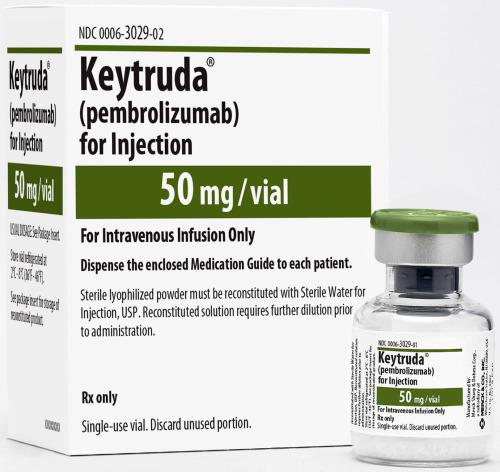Contents
Keytruda Cost Medicare: Understanding Medicare Coverage
Keytruda is typically covered under Medicare Part B, which covers outpatient medical services, including doctor visits, certain medications administered in a doctor’s office or clinic, and durable medical equipment. However, coverage for Keytruda under Medicare Part B is subject to certain conditions, including:
- Medical Necessity: Keytruda must be deemed medically necessary for the treatment of the patient’s specific cancer type and stage.
- FDA Approval: Keytruda must be FDA-approved for the specific indication for which it is being prescribed.
- Physician Administration: Keytruda must be administered by a physician or under the direct supervision of a physician.
Keytruda Cost Medicare: Patient Financial Responsibility
Even with Medicare Part B coverage, patients are still responsible for a portion of the cost of Keytruda. This includes:
- Part B Deductible: Patients must meet their annual Part B deductible before Medicare coverage begins. In 2023, the Part B deductible is $226.
- Coinsurance: After meeting the deductible, patients are typically responsible for 20% of the Medicare-approved amount for Keytruda.
- Other Costs: Patients may also incur additional costs, such as copayments for doctor visits or other medications.
Keytruda Cost Medicare: Factors Affecting Out-of-Pocket Costs
Several factors can influence the out-of-pocket costs that patients face for Keytruda, even with Medicare coverage. These include:
- Dosage and Frequency: The dosage and frequency of Keytruda administration can vary depending on the patient’s specific condition and treatment plan. Higher dosages or more frequent administrations will generally result in higher costs.
- Duration of Treatment: The duration of Keytruda treatment can also vary significantly. Longer treatment durations will naturally lead to higher overall costs.
- Supplemental Insurance: Patients with supplemental Medicare insurance, such as Medigap or Medicare Advantage plans, may have some of their out-of-pocket costs covered. However, the extent of coverage can vary depending on the specific plan.
- Patient Assistance Programs: Keytruda’s manufacturer, Merck, offers patient assistance programs that may help eligible patients with the cost of the medication.
Keytruda Cost Medicare: Financial Assistance Options
Navigating the financial complexities of Keytruda treatment can be overwhelming. However, several resources and programs can help patients manage the costs:
- Medicare Savings Programs: These programs help low-income individuals and families with Medicare premiums, deductibles, and coinsurance.
- State Pharmaceutical Assistance Programs: Many states offer programs to help residents with the cost of prescription medications, including Keytruda.
- Nonprofit Organizations: Several nonprofit organizations provide financial assistance to cancer patients, including help with medication costs.
- Patient Advocacy Groups: Patient advocacy groups can offer valuable information and support to patients navigating the financial challenges of cancer treatment.
Keytruda Cost Medicare: Case Study – John’s Journey
John, a 72-year-old retiree, was diagnosed with advanced melanoma. His oncologist recommended Keytruda as part of his treatment plan. John was enrolled in Medicare Part B but had no supplemental insurance.
Keytruda’s high cost was a major concern for John. He worried about how he would afford the treatment and the potential financial burden it would place on his family. John’s oncologist referred him to a financial counselor at the cancer center who helped him explore his options.
The financial counselor helped John apply for a Medicare Savings Program, which significantly reduced his out-of-pocket costs for Keytruda. She also connected him with a patient assistance program offered by Merck, which provided additional financial support.
With the help of these resources, John was able to access Keytruda and focus on his treatment and recovery. He is grateful for the financial assistance he received and encourages other patients to explore their options and not let the cost of treatment deter them from seeking the care they need.
Keytruda Cost Medicare: The Importance of Financial Planning
The high cost of cancer treatment underscores the importance of financial planning, especially for individuals approaching retirement age. Consider these strategies:
- Review your Medicare coverage: Understand your Medicare benefits and any potential gaps in coverage. Consider supplemental insurance options to help with out-of-pocket costs.
- Consult a financial advisor: A financial advisor can help you develop a comprehensive financial plan that includes provisions for potential healthcare expenses.
- Explore long-term care insurance: Long-term care insurance can help cover the costs of extended care, including nursing home care or in-home care, which may be necessary for individuals with chronic illnesses.
- Communicate with your healthcare team: Discuss your financial concerns with your healthcare team. They can help you understand the potential costs of treatment and connect you with resources to help manage those costs.
Keytruda Cost Medicare: Advocacy and Policy Considerations
The high cost of Keytruda and other innovative cancer treatments raises important questions about drug pricing and access to care. Patient advocacy groups and policymakers are working to address these issues and make lifesaving treatments more affordable for all.
Some of the key policy considerations include:
- Drug Pricing: Exploring ways to regulate drug prices and ensure that innovative treatments are accessible to all patients, regardless of their financial means.
- Medicare Negotiation: Allowing Medicare to negotiate drug prices directly with pharmaceutical companies, which could lead to lower costs for patients.
- Value-Based Pricing: Linking drug prices to their clinical effectiveness and value, rather than solely on research and development costs.
- Transparency: Increasing transparency in drug pricing and the factors that contribute to high drug costs.
Keytruda Cost Medicare: Conclusion
Keytruda offers a lifeline to many cancer patients, but its high cost can create significant financial challenges. Medicare coverage helps, but patients are still often left with substantial out-of-pocket expenses. It is crucial for patients to understand their Medicare benefits, explore financial assistance options, and communicate openly with their healthcare team about their financial concerns.
Advocacy and policy efforts are also essential to address the broader issues of drug pricing and access to care. By working together, we can ensure that innovative treatments like Keytruda are accessible and affordable for all who need them.
Read More: Michigan Medicare Supplement Plans: A Comprehensive Guide






